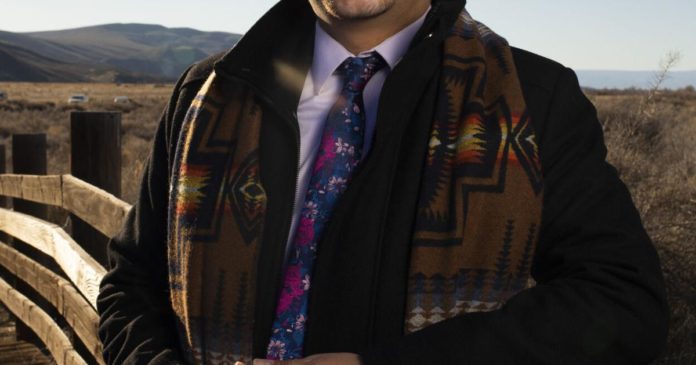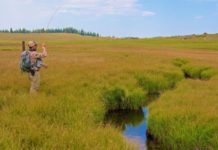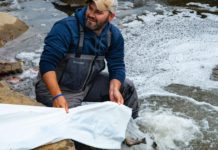In early December, Corbin Schuster took the most intense exam of his life, as he described it. On the morning of Dec. 9, he defended his doctoral dissertation before a committee of five Oregon State University professors.
He knew them all, having worked with each as he pursued his advanced degree in microbiology. Seeing familiar faces didn’t make his 2½-hour defense any easier.
With his successful dissertation defense and graduation, he became Dr. Corbin Schuster. He didn’t take much time to relax, though. Along with his research job for the Zebrafish International Resource Center at the University of Oregon in Eugene, Corbin recently began teaching an online science class at Heritage University in Toppenish.
And in spring 2023, Corbin will join the Heritage faculty as an assistant professor of microbiology. He just started his two-year contract with the zebrafish center, so there will be some overlap there, he said.
It’s important for him to share his love of science and research with others, particularly Indigenous youth.
“I really want to get more Indigenous representation in science. I have a passion for mentoring,” Corbin said. “I spend a lot of time working with different students off the clock, getting them interested in science and higher education in general.”
Corbin grew up in Toppenish, the son of Regina Hernandez and Willy Schuster, also from Toppenish, and graduated from Zillah High School in 2012. He is a Yakama Nation citizen with family connections to the Confederated Tribes of Warm Springs in Oregon.
A science career wasn’t always on his radar. Corbin had considered teaching, criminal justice and business. Once he began taking classes at Heritage, his future came into focus. Two Heritage professors, Drs. Michael Parra and Robert Kao, were particularly influential, Corbin said.
“They got me really interested in research and encouraged me to do an internship,” Corbin said. His molecular biology internship with Washington State University began in 2016 with a study of genes that are resistant to certain plant pathogens.
He graduated from Heritage in 2018 with a bachelor of science degree in biomedical science. Also that year, Corbin had a 10-week internship at the National Institutes of Health, in its National Institute of Diabetes and Digestive and Kidney Diseases. There, he studied how high-fat diets impact diet failure.
Postgraduate work took Corbin to Oregon State University in Corvallis, Ore. He thanked Elese Washines of Yakama Nation Higher Education for her support in his success there, and mentioned his grandparents, Elmer and Cleda Schuster.
As noted in a 2021 online profile shared by Oregon State, Schuster is interested in the study of human diseases that have a higher incidence among Native peoples, such as toxoplasmosis (a parasitic infection), as well as diseases of salmon, which are central to the food, culture and religion of the Yakama people.
“My big ideal dream is to create a research program here at Heritage with OSU and WSU to get graduates into research,” he said. “We don’t have to leave the Valley anymore to do this work, and I really believe in that mission.”
Corbin is now working on a public health project centered on COVID-19, specifically loss of smell and taste in relation to race and social status. An international survey is underway and findings should be published sometime this year or early next year, Corbin said.
He recently came back to the Yakama Reservation to see family. His schedule is fairly flexible and he often works through his weekends. So when he can, Corbin takes a day off during the week for his favorite hobbies.
“I love hiking and fishing, being out on the Columbia fly fishing or traditional fishing,” he said.
Profession: Research scientist in the Zebrafish International Resource Center at the University of Oregon in Eugene; adjunct professor at Heritage University in Toppenish
Credit: Source link






























